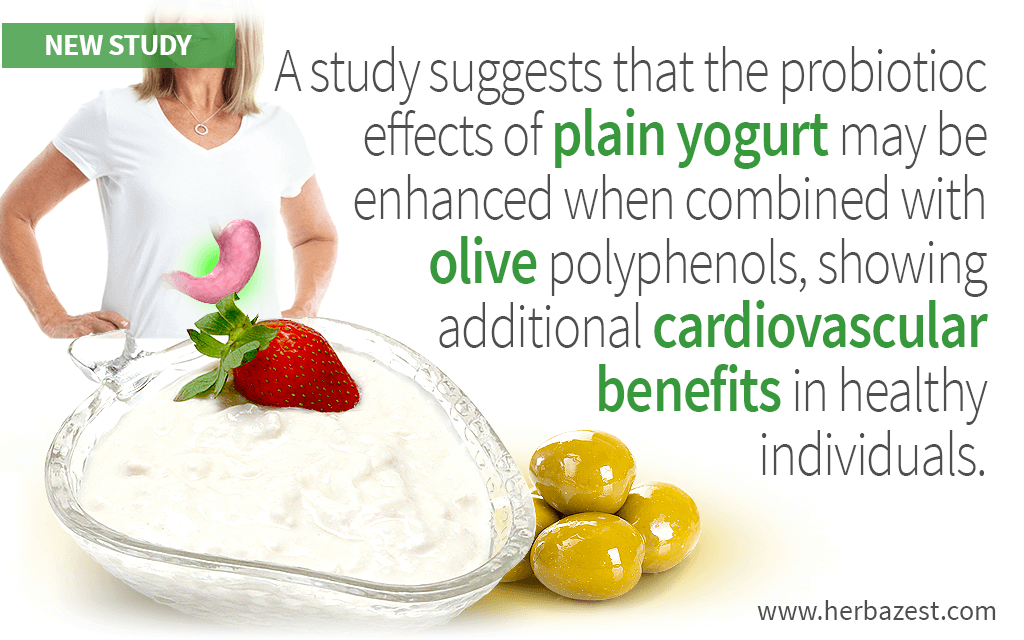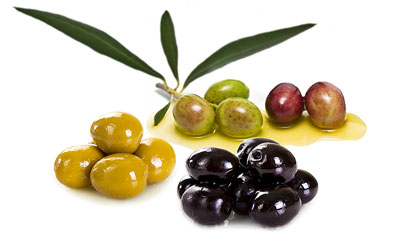The beneficial effects of olives for cholesterol control are mainly due to their high amount of polyphenols, a class of phytonutrients with well-known cardioprotective properties. An interdisciplinary group of researchers at the University of Thessaly in Greece investigated how the addition of olive polyphenols to yogurt affected the probiotics in the yogurt itself as well as metabolic indicators in the participants who consumed the yogurt and olives preparation. Their work has been published in the scientific journal Nutrients.
The Study
16 healthy men and women participated in the study. Each day for two weeks, the participants consumed either 400 grams of yogurt with the olive polyphenols added or 400 grams of plain yogurt as a control. Then, during the second two weeks of the study, the participants consumed the version of the yogurt that they did not consume previously. Blood samples were taken at the start of the study and at the end of each two-week period.
The researchers also analyzed the composition of the yogurt and olives preparation to see if the addition of olive polyphenols had any effect on the properties of the yogurt or the microorganisms inside.
The Results
Those who consumed the olives yogurt as well as those who consumed the plain yogurt had small but statistically significant reductions in body weight and systolic blood pressure, possible due to the satiety yogurt provides. In particular, those who consumed the olive yogurt showed a decrease in LDL cholesterol levels.
The olive polyphenols made the yogurt more acidic and increased the growth of its beneficial lactic acid bacteria. They also reduced the growth of yeast and mold, normal microorganisms in yogurt that cause it to eventually spoil.
What Does This Mean?
This study adds to the growing body of evidence that polyphenols from plants like pomegranate and tomato have cardiovascular benefits. The hypocholesterolemic properties of olive polyphenols are especially useful in yogurt. This is because dairy products - despite being rich in calcium, B vitamins, and other micronutrients - are often seen as unhealthy because of their saturated fat content. The addition of olive polyphenols to Greek yogurt has the potential to provide cardiovascular benefits and extend the shelf life of the food.
It is also important to take the limitations of the study into consideration. The sample size was small, and the volunteers did not have any declared health problems. Olive polyphenols may not provide benefits in individuals who already have conditions such as obesity. Additionally, since this was a short-term study, the benefits of yogurt and olives for cholesterol control over a longer period of consumption remain uncertain. Nonetheless, the study shows that olive polyphenols in yogurt reduce cardiovascular risk factors when consumed daily.
Sources
- Nutrients, The Effects of an Olive Fruit Polyphenol-Enriched Yogurt on Body Composition, Blood Redox Status, Physiological and Metabolic Parameters and Yogurt Microflora, 2016





